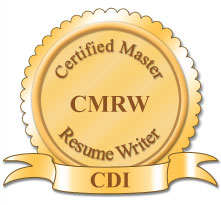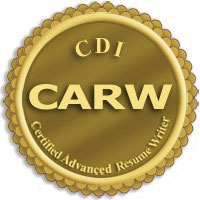 Perhaps you’ll identify with me when I say I can’t stand hearing anyone complain—except for myself. That said, even my tolerance for my own complaints has plummeted in the last few years. As soon as I start complaining in a conversation, I know I’ve made a big mistake. I leave the interaction feeling horrible, sure the person I was talking to will never want to talk to me again.
Perhaps you’ll identify with me when I say I can’t stand hearing anyone complain—except for myself. That said, even my tolerance for my own complaints has plummeted in the last few years. As soon as I start complaining in a conversation, I know I’ve made a big mistake. I leave the interaction feeling horrible, sure the person I was talking to will never want to talk to me again.
Last week, while reading AJ Jacobs’ The Guinea Pig Diaries, I learned something new about the impact of my complaining or criticizing. I was shocked to discover a phenomenon that makes people really and truly think poorly of me when I speak poorly of others.
You Are What You Speak
It turns out that not only are complainers seen as negative, but that the characteristics they attribute to others are automatically attributed to them by their listener. So if I call someone racist, the person listening to me will unconsciously dub me a racist. If I call someone stupid or incompetent, I will be seen as stupid and incompetent. In contrast, if I talk about how nice, helpful, talented, and all-around awesome people are, listeners will associate all those positive characteristics with me.
Since learning about this mind mechanism, I’ve become much more conscious of my speech. I now understand that by using negative language, I’m risking not only that people will have a generally negative feeling about me, but also that they will make specific negative judgments that I certainly don’t want attached to me. By using more positive words, I can consciously shape the way people think of me.
I recently had a conversation with one of my executive clients, who had been given the runaround, then turned away by another resume writing company, because they don’t work with “Muslim terrorists.” I can assure you this man is one of the most generous and kind people you would ever want to meet. He did not have anything negative to say about that company, and he chose not to report them to the BBB or even tell LinkedIn to investigate their profiles. He figured he could stay positive, and let them dig their own graves. If they are putting out that negativity into the world, they themselves will be seen as negative.
Positive Language in Your Job Search
Also last week, I saw a resume that spoke of bringing together often “fractious” staff. The word “fractious” appeared twice in one resume! Guess what anyone reading that resume will think of the applicant? Yep… that he himself is the fractious one. His final resume will not include that word if I have anything to say about it. Instead, he will say that he fostered teamwork in a diverse, multi-cultural environment. That sounds much better doesn’t it? While it’s important in many cases to provide a “before and after” picture to highlight your accomplishments, putting people down will never serve you. You can talk about bringing negative profits to positive ones, but don’t let the negative adjectives spill over onto people. (Learn more about creating compelling accomplishment bullets with my DIY resume books. Sign up here to get a free excerpt!)
In job interviews as well, I can’t emphasize enough the importance of staying positive. I still remember an interview I gave when I was a manager in a legal department. The interviewee had an impressive background, but in her interview, almost every word out of her mouth was about the negative aspects of her prior employment. Needless to say, she didn’t get hired. If she had been more positive, we would have considered her.
In Business Insider’s 29 Words You Should Never Say in a Job Interview, here’s what author Jacquelyn Smith says about some clearly damaging words you must avoid:
‘Terrible,’ ‘horrible,’ ‘awful,’ ‘hate,’ etc.
You shouldn’t use negative language during your interview — especially when you’re talking about your current or previous boss or employer.
“Even if the interviewer invites you to, don’t,” Hoover says. It’s not classy, and it will make you sound bitter and petty. “It also shows that you could bad-mouth any boss or company in the future — and it could even be a test to see if you will say anything disparaging.”
That’s great advice, and now I understand that if you use words like these, you will actually be perceived as terrible, horrible, awful, hating person.
While Ms. Smith doesn’t suggest positive words to emphasize, I would offer “exciting,” “growthful,” “positive,” “amazing,” “collaborative,” “talented,” “friendly,” “smart,” “brilliant,” “creative,” “innovative,” and other adjectives that paint others – and, by default, you – in a favorable light.
The Challenge, If You Choose to Accept It
Eliminating negative language is not as easy as it sounds. I caught myself today talking to a very helpful man at the airport about how unhelpful a customer service person had been because she gave me directions to the hotel shuttle that didn’t help. “Wow,” I thought, “I’m addicted to complaining!” There was clearly no useful purpose in sharing that information with him, and now he probably thinks I’m negative and unhelpful. I sure have a lot more work to do on this positivity project!
I’m grateful to have people like my client and others who inspire me to live and work “above the line.” They keep me honest and, well, I think they’re fantastic and awesome!
Are you ready to start being more aware of your language so you can be perceived in a positive light yourself, in life, in business, and in your job search? Please share your thoughts and stories below.











Important message. Thanks.
Many years ago, I interviewed a candidate for a position at my synagogue. It was a year after he had left a very long period at a similar position elsewhere in the area and there had been speculation as to why he’d left. Because of that speculation, our Rabbi first offered him the opportunity to briefly set the record straight by telling our search committee anything he thought we should know about why he left all the gossip. He then spent the entire rest of the long interview just complaining about his previous employer, and whenever we asked him something else, he went right back to the complaining. He was uniquely qualified and skilled, but no one on the committee wanted to consider him after all that negative talk, which I still remember to this day.
One other thought jumped to mind after reading your blog entry, an old song by Johnny Mercer:
You’ve got to accentuate the positive
Eliminate the negative
And latch on to the affirmative
Don’t mess with Mister In-Between
You’ve got to spread joy up to the maximum
Bring gloom down to the minimum
Have faith or pandemonium’s
Liable to walk upon the scene
To illustrate my last remark
Jonah in the whale, Noah in the ark
What did they do just when everything looked so dark?
Man, they said We’d better accentuate the positive
Eliminate the negative
And latch on to the affirmative
Don’t mess with Mister In-Between
No, Don’t mess with Mister In-Between
Great example, and great tune Larry!